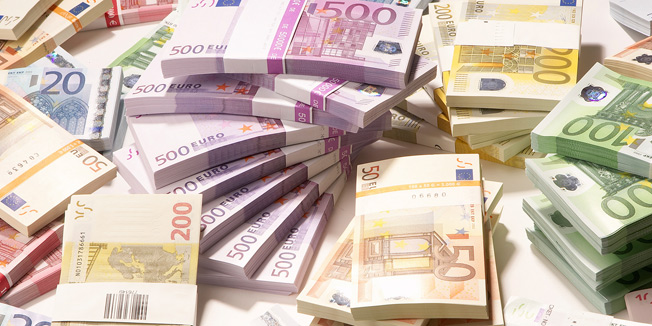
”I would like to begin by thanking Mayor Karic for hosting this evening’s special event to celebrate two turning points that have profoundly shaped Europe’s past and present: Victory Day and Europe Day. It is a great pleasure and honor to commemorate these two occasions − the anniversary of the Schuman Declaration – which marks the beginning of the European Union – and that of victory over fascism − in this building, which reflects the rich heritage and culture of Sarajevo and of Bosnia and Herzegovina as a whole. Heritage and culture which, in fact, are an integral part of the past and present of the whole continent,” is stated by the Head of the EU Delegation and EU Special Representative in BiH, Johann Sattler at the event organized on the occasion of the Victory Day and Europe Day in Sarajevo City Hall.
Europe Day is not only about celebrating peace and cooperation among EU member states today. It is also about looking back at the road that the countries have had to travel to move away from a deeply divided continent and to become what is now the European Union.
What Beethoven’s Ode to Joy, which we just heard encapsulates so beautifully – Alle Menschen werden Brüder/all people become brothers and sisters. In order to learn from past mistakes but, above all, to learn from the wise choices, successful efforts and workable solutions that people before us have engaged in.
”With this in mind, allow me to take a brief look back to how European integration – as Jean Monnet, one of the EU’s founding fathers – succinctly put it – how EU integration has made men work together; show[ed] them that beyond their differences and geographical boundaries, there lies a common interest”,” he added.
The Schuman Declaration, signed 71 years ago this day, paved the way for nations that once fought each other to reconcile and cooperate, and eventually to become friends and allies. Millions of people and some wise political leaders in the hard era after the Second World War were willing to make that happen, and they did.
They were optimists, despite harsh conditions and bleak prospects.
The same spirit and resolve is discernible in the post-war years of my own country, Austria.
There was a conscious effort to come to the terms with its past. Yes, it was difficult and it was painful, as it required a lot of soul searching, since a good number of my country men were perpetrators, were active participants in the evil ideology of nazism and fascism.
And yes, it took time. Yet, the idea of overcoming the past, of learning from past mistakes, of working towards a better future won through. Courageous leaders in many European countries, in politics, religion and society led the way in embracing what are today the fundamental EU values of democracy, human rights, tolerance and justice. This is what the European Union stands for. This is also what the people of Bosnia and Herzegovina want.
The path from a deeply divided country or continent into a community of peace, stability, democracy and prosperity is never painless. And this work never stops – as we speak today, there are huge challenges on the table, from the economic recovery after the devastating pandemic, to climate change, to social injustices.
This work requires openness from political actors to engage in genuine search for solutions through dialogue; patience and persistence; readiness to compromise; and a great deal of courage.
These are also the traits that enabled European leaders to start cooperating and building a common future after the devastation and destruction of the Second World War.


















